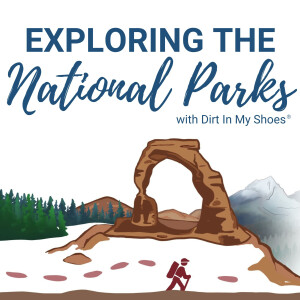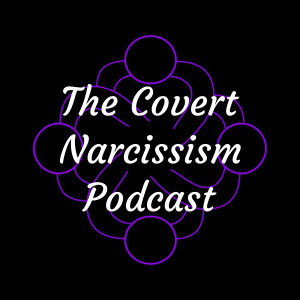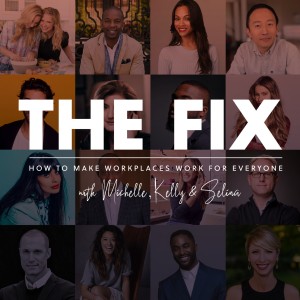
Joining us on today’s episode is Lily Zheng author of DEI Deconstructed and a sought-after diversity, equity, and inclusion speaker, strategist, and organizational consultant who specializes in hands-on systemic change to turn positive DEI intentions into positive DEI outcomes for workplaces and everyone in them.
Why do DEI efforts fail, is a question asked by many leaders. Why is it that companies claim to be invested in advancing DEI, launching one initiative after another, yet research finds at any one point in time roughly 50% of us feel isolated, excluded, devalued and disengaged at work?
There are three reasons why DEI efforts fail, these include fatigue, backlash and denial. When DEI efforts, don’t address the root cause of inequality people become tired with all the lip service. This fatigue leads to backlash as people resist effort and initiatives that aim to address discrimination and inequality at work. And when resistance isn’t enough, people may resort to denying that inequality exists at all, examples of this include managers simply not believing inequality is a problem in their workplace.
Lily explains that it’s not that people are tired of doing DEI work, it's that they're tired of doing DEI work that doesn't achieve anything. To address that kind of fatigue we need to be rethinking all of our in initiatives, potentially even doing less, but making sure that we can directly tie every single thing we're doing into the outcomes we're trying to create.
Fatigue backlash and denial create the DEI death spiral because it leaves people feeling powerless to affect change. There is nothing I can do to change my workplace, but this simply isn’t true Lily gives us these actions to take away.
Action One: Get to know the difference between the types of power; formal, reward, coercive and expert power. Know that everyone within an organization has power, you just have to know how to use it.
Action Two: Be strategic in how you use your power and think of your connections within an organization to use your unique power as a tool to make change. Back this up with expert ideas to aid change to take place.
Action Three: Organizing is really powerful. You can organize as part of an employee resource group. You can organize as part of a DEI council or committee, you can organize to encourage and highlight the workforces strengths. All of these are really powerful. Manifestations of collective power, collective organizing, collective advocacy. They’re all tools that all employees have at their disposal to make change within workplaces
Lily Zheng
Dei Deconstructed: Your No-Nonsense Guide to Doing the Work and Doing It Right
More Episodes
The Power of Pressure: How To Make Challenging Times Work For You - Dane Jensen
 2021-10-21
2021-10-21
 1.4k
1.4k
Beer and Sexism: The Untold Story - Katie Muggli
 2021-10-13
2021-10-13
 1.4k
1.4k
Creating Psychological Safety at Work - Minda Harts & Jon Hicks
 2021-09-30
2021-09-30
 1.5k
1.5k
How To Engage The Next Generation of ChangeMakers - Melissa Kilby
 2021-09-22
2021-09-22
 1.4k
1.4k
Publishing: The Devaluing of Difference - Rebekah Borucki
 2021-09-15
2021-09-15
 1.4k
1.4k
Roe Vs Wade: Kelly Thomson and Anna Cronin-Scott
 2021-09-08
2021-09-08
 1.5k
1.5k
The Authority Gap - Mary Ann Sieghart
 2021-09-01
2021-09-01
 1.6k
1.6k
Closing The Gender Gap in Innovation - Danielle Kayembe
 2021-08-25
2021-08-25
 1.4k
1.4k
Why It’s Time To Ditch Quotas: Dr Ted Sun
 2021-08-04
2021-08-04
 1.4k
1.4k
The Friendship Gender Gap: Smiley Poswolsky
 2021-07-28
2021-07-28
 1.5k
1.5k
Meet the Two Women Behind 25 Years of The Daily Show
 2021-07-21
2021-07-21
 1.3k
1.3k
Dear White Friends : Melvin J. Gravely, II
 2021-07-14
2021-07-14
 1.5k
1.5k
Your Permission Slip: Managing Mental Health at Work - Melissa Doman
 2021-07-07
2021-07-07
 1.3k
1.3k
Diversity in Dance : Ingrid Silva
 2021-06-30
2021-06-30
 1.2k
1.2k
Women Don't Get The Same Feedback As Men And It’s Hurting Their Advancement - Dr. Laura Hamill
 2021-06-23
2021-06-23
 1.5k
1.5k
Overcoming White Feminism. How to be an Anti Racist Ally : Sophie Williams
 2021-06-16
2021-06-16
 1.3k
1.3k
Great minds don't all think alike: Rob Austin
 2021-06-09
2021-06-09
 1.2k
1.2k
Welcome To The Post Pandemic Workplace - Anna Meller
 2021-06-02
2021-06-02
 1.1k
1.1k
Heard of the Gender Pain Gap? - Dr Jen Peña
 2021-05-26
2021-05-26
 934
934
The Future of Leadership - Leah Weiss
 2021-05-19
2021-05-19
 959
959
Create your
podcast in
minutes
- Full-featured podcast site
- Unlimited storage and bandwidth
- Comprehensive podcast stats
- Distribute to Apple Podcasts, Spotify, and more
- Make money with your podcast
It is Free
You may also like

Exploring the National Parks


The Covert Narcissism Podcast


Greece Travel Secrets Podcast


Stuff You Should Know


Timcast IRL


- Privacy Policy
- Cookie Policy
- Terms of Use
- Consent Preferences
- Copyright © 2015-2024 Podbean.com



 iOS
iOS Android
Android